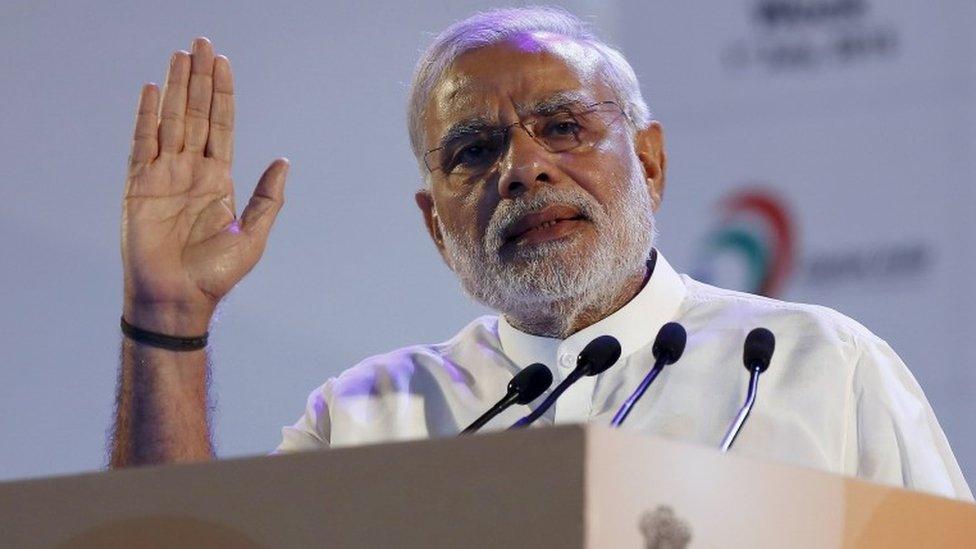Can Modi reconnect India with Central Asia?
- Published
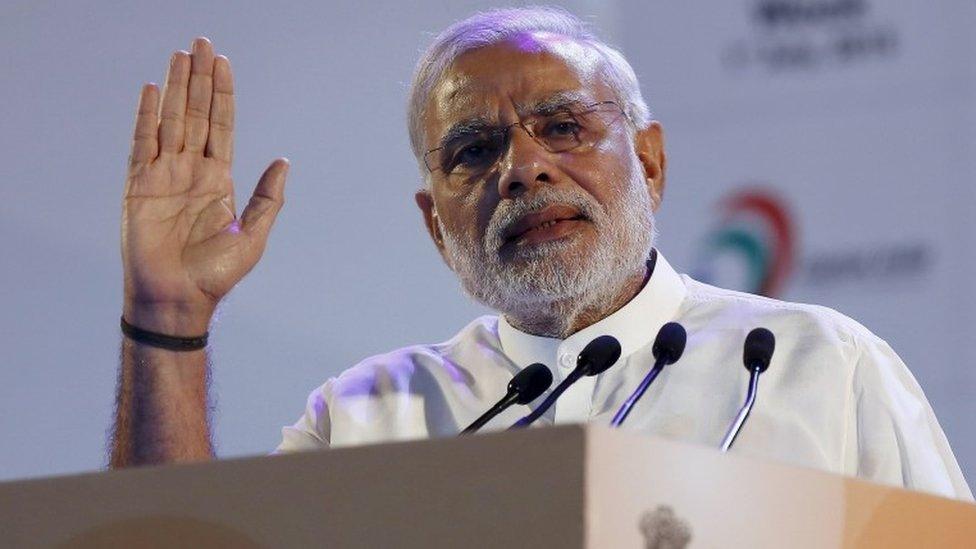
Mr Modi has become the first Indian prime minister to visit all five central Asian countries in one trip
Prime Minister Narendra Modi's recent visit to five Central Asian countries has reinvigorated India's traditional ties with the region. BBC Monitoring's Vikas Pandey analyses the PM's whirlwind tour and India's interests in the region.
"We see an important place for Central Asia in India's future," Mr Modi said in Kyrgyzstan's capital Bishkek.
The statement shows his government's stress on increasing Delhi's footprints in the region.
Dr Athar Zafar, Central Asia analyst at Indian Council of World Affairs, says India's academic, business and diplomatic community always wanted Delhi's ties with the five nations to go beyond cultural exchanges.
Has Mr Modi achieved that?
He says the PM has certainly been successful in signalling India's interest in playing a bigger role in the region.
During Mr Modi's visit, India signed several deals in energy, trade, culture and security sectors with the five nations.

Energy
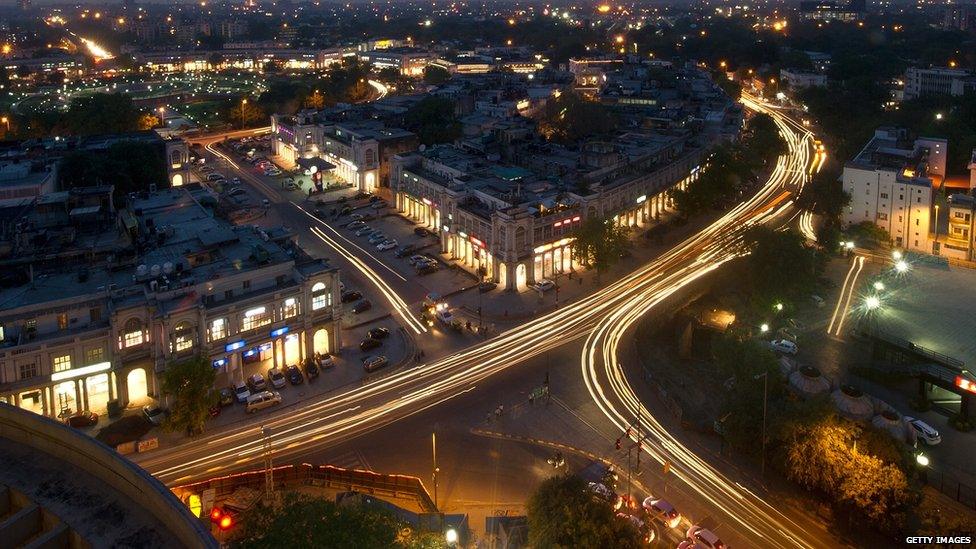
India is one of the fastest growing economies in the world and its hunger for energy is increasing every year
The five Central Asian countries became independent in 1990s and have made steady economic progress in the past two decades.
The region is known for its resources like hydrocarbon, mineral deposits, hydroelectric power potential and gold.
India signed a fresh deal with Kazakhstan to secure 5,000 tonnes of uranium supply over the next four years. Kazakhstan is the world's largest producer of uranium and the deal has ensured a steady supply of fuel for India's 21 operating nuclear reactors.
India's state-run oil firm ONGC Videsh Limited has a minor stake in Kazakhstan's Satpayev oil blocks. Mr Modi wanted additional blocks for India's investments, but no specific announcement was made by the two sides on this front.
The Indian PM, however, said, Kazakh President Nursultan Nazarbayev "responded positively to my request to consider additional mature blocks".
In Turkmenistan, the long-awaited TAPI (Turkmenistan-Afghanistan-Pakistan-India) gas pipeline was discussed and Mr Modi termed the project as a "key pillar" of economic engagement between the two countries.
The pipeline plan may face hurdles because of the deteriorating security situation in Afghanistan. But the two countries have showed their sincerity in realising the project that would bring gas from Central Asia to South Asia.

Trade
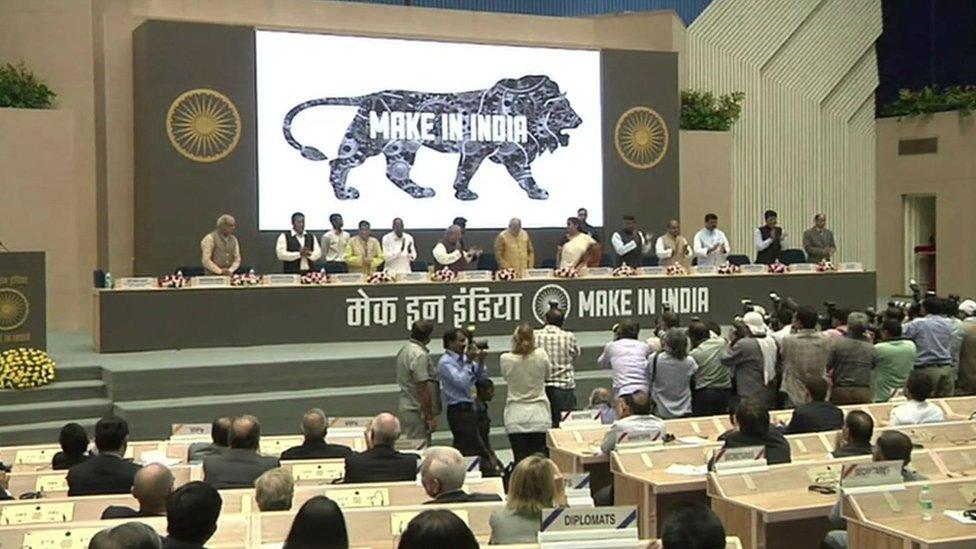
Mr Modi's wants to make India a global manufacturing hub and sees Central Asia as a key market
The economic development of Central Asia, specially in Kazakhstan, Turkmenistan and Uzbekistan, has sparked a construction boom and development of sectors like IT, pharmaceuticals and tourism.
India has expertise in these sectors and deeper cooperation will give a fresh impetus to trade relations with these countries. India's trade ties with Central Asia have been performing well below their true potential.
"India's struggle to reform its economy, reconstruct relations with major powers after the Cold War and reconstitute ties with neighbours meant Central Asia was never high on Delhi's foreign policy agenda," writes C Raja Mohan in the Indian Express.
Poor connectivity has also contributed to the below-par trade between India and Central Asia.
But Dr Zafar says India has found a way to solve the problem. Turkmenistan and Kazakhstan recently inaugurated a railway line connecting the two countries with Iran.
"India has invested in Iran's Chabahar port and that will allow Indian products to reach Iran and then to Central Asia through the rail link," he explains
The successful nuclear deal between Iran and major world powers will also make it easier for Delhi to do business with Tehran.
Central Asian countries have shown their keen interest in allowing India to play a bigger role in the region. Russia has been a dominant force in the region and China has also made inroads into the region in recent years.
But the five capitals want to diversify their foreign relations and believe that India's presence will help them achieve their aim. And Mr Modi seems to have leveraged Central Asia's quest for diversification to India's advantage.

Security
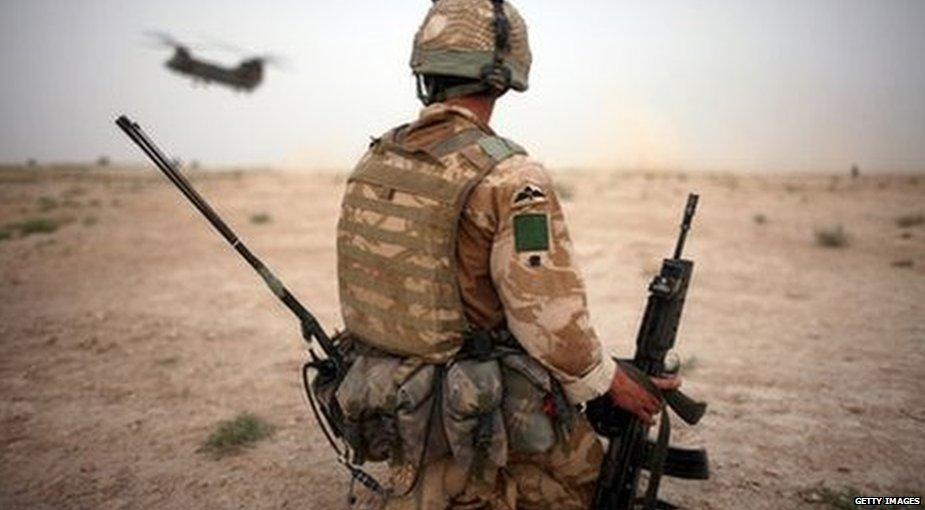
India and Central Asian countries are concerned over Afghanistan's security situation
Tajikistan, Turkestan and Uzbekistan share borders with Afghanistan and fear that any instability in the neighbourhood will affect them.
India's has traditionally stayed away from playing any military role in Afghanistan. But experts say Mr Modi may have to find a middle path to play "military diplomacy" in the region.
"Mr Modi also needs to end India's traditional reluctance to embark upon an expansive military diplomacy in the region. Overcoming India's inertia will certainly take a while. But Modi is well positioned to make a fresh start in Central Asia," writes Mr Mohan.
Central Asian countries are also "nervous" about the growing influence of Islamic State militant group in the region. The PM has convinced the leaders of the five nations that India stands united in their fight against the jihadist group.

Culture
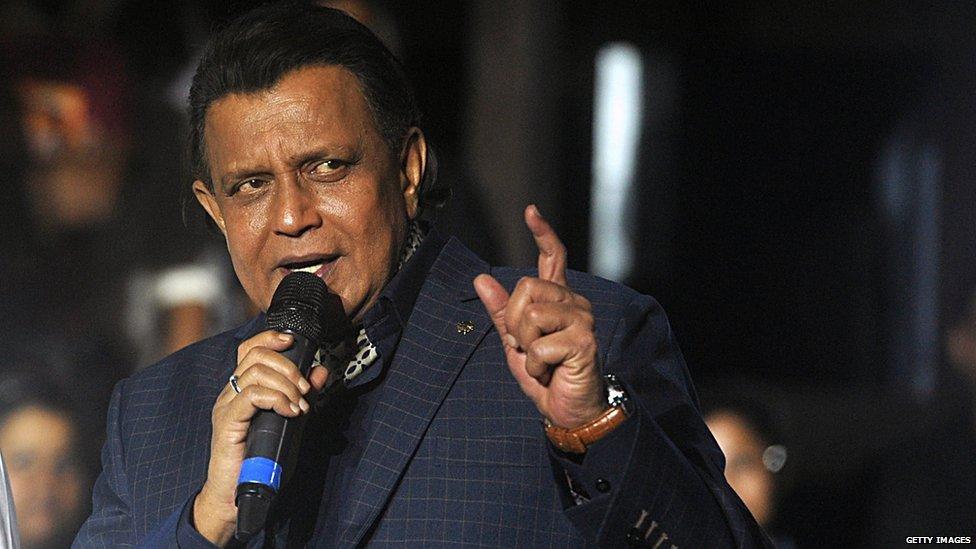
Bollywood star Mithun Chakraborty is hugely popular in Central Asia
India and Central Asia have a rich history of cultural exchanges.
Mr Modi emphasised in all the five capitals that India is interested in promoting more cultural activities.
He also signed deals to promote tourism between India and the region.
Indian filmmakers can use the stunning landscapes of Central Asian countries at a relatively low cost.
As one analyst said, the appearance of Central Asia in Bollywood films will be an indication that Mr Modi's tour has been successful.
BBC Monitoring, external reports and analyses news from TV, radio, web and print media around the world. You can follow BBC Monitoring on Twitter , externaland Facebook, external.
- Published8 July 2015
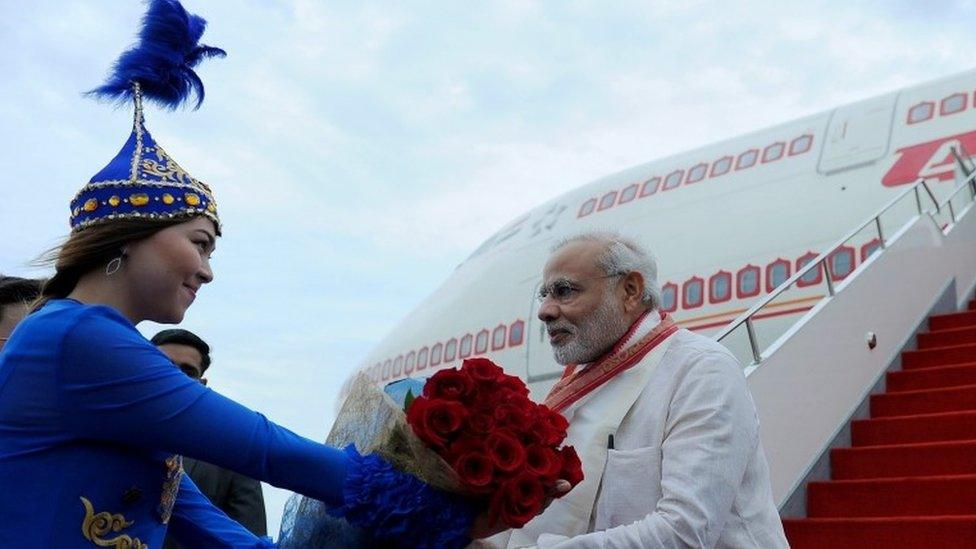
- Published6 July 2015
